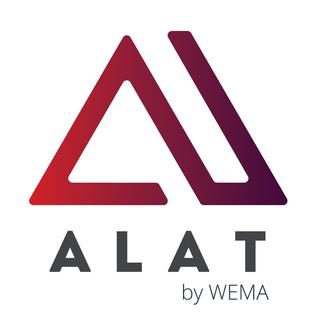Mobile banking in Nigeria is a type of banking service that allows individuals to access their bank accounts and perform financial transactions using their mobile phones. Mobile banking can be accessed through a variety of methods, including mobile apps, USSD (Unstructured Supplementary Service Data) codes, and SMS (Short Message Service) texting.
To use mobile banking in Nigeria, individuals must first register for the service with their bank. Once registered, they can access their accounts and perform financial transactions using their mobile phone or tablet. Mobile banking can be used to check account balances, transfer funds between accounts, pay bills, and make purchases.
Mobile banking is a convenient and widely available option for individuals in Nigeria who want to access their bank accounts and perform financial transactions on the go. It is often more secure than traditional methods, such as using cash or checks, and it may offer additional features and benefits such as the ability to track spending, set alerts, and access account information. However, it is important to carefully consider the security risks and potential fees associated with mobile banking before using it.
Table of Contents
What are the features of mobile banking in Nigeria?
Mobile banking in Nigeria typically offers a range of features and benefits, including:
- Access to account information: Mobile banking allows individuals to check their account balances, view recent transactions, and access other account information on the go.
- Fund transfers: Mobile banking allows individuals to transfer funds between accounts, including the ability to send money to other individuals or businesses.
- Bill payment: Mobile banking allows individuals to pay bills, such as utility bills, credit card bills, and rent, directly from their mobile phones.
- Mobile banking apps: Many banks in Nigeria offer mobile banking apps that allow individuals to access their accounts and perform financial transactions using their smartphone or tablet. Mobile banking apps often offer additional features and benefits, such as the ability to track spending, set alerts, and access account information.
- USSD banking: USSD (Unstructured Supplementary Service Data) banking is a type of mobile banking that allows individuals to access their bank accounts and perform financial transactions using their mobile phones. USSD banking does not require the use of a smartphone or internet connection and can be accessed using any type of phone.
What are the benefits of mobile banking in Nigeria?
Mobile banking in Nigeria offers a range of benefits to individuals, including:
- Convenience: Mobile banking allows individuals to access their bank accounts and perform financial transactions on the go using their mobile phones or tablets. This can be especially useful for individuals who are unable to visit a bank branch in person.
- Security: Mobile banking is often more secure than traditional methods of banking, such as using cash or checks. Mobile banking apps and USSD codes may offer additional security features, such as fraud monitoring and the ability to cancel or replace a lost or stolen card.
- Time-saving: Mobile banking allows individuals to perform financial transactions and manage their accounts from their mobile devices, saving time and effort compared to visiting a bank branch in person.
- Increased accessibility: Mobile banking can be especially beneficial for individuals who live in areas with limited access to bank branches or ATMs.
- Additional features and benefits: Mobile banking may offer additional features and benefits, such as the ability to track spending, set alerts, and access account information.
Pros and cons of mobile banking in Nigeria
Mobile banking in Nigeria has several pros and cons that individuals should consider before using it:
Pros:
- Convenience: Mobile banking allows individuals to access their bank accounts and perform financial transactions on the go using their mobile phones or tablets. This can be especially useful for individuals who are unable to visit a bank branch in person.
- Security: Mobile banking is often more secure than traditional methods of banking, such as using cash or checks. Mobile banking apps and USSD codes may offer additional security features, such as fraud monitoring and the ability to cancel or replace a lost or stolen card.
- Time-saving: Mobile banking allows individuals to perform financial transactions and manage their accounts from their mobile devices, saving time and effort compared to visiting a bank branch in person.
- Increased accessibility: Mobile banking can be especially beneficial for individuals who live in areas with limited access to bank branches or ATMs.
- Additional features and benefits: Mobile banking may offer additional features and benefits, such as the ability to track spending, set alerts, and access account information.
Cons:
- Dependence on technology: Mobile banking relies on technology, and it may not be available if an individual’s device is lost, stolen, or malfunctioning.
- Security risks: Mobile banking is subject to security risks, such as the possibility of data breaches or fraud. It is important to take steps to protect against these risks, such as using strong passwords and keeping device software up to date.
- Potential fees: Mobile banking may be subject to fees, such as ATM fees, overdraft fees, and foreign transaction fees. It is important to carefully understand and compare the fees associated with different mobile banking options before choosing one.
Overall, mobile banking in Nigeria offers a convenient and secure way for individuals to access their bank accounts and perform financial transactions on the go. However, it is important to carefully consider the potential risks and fees before using it.


